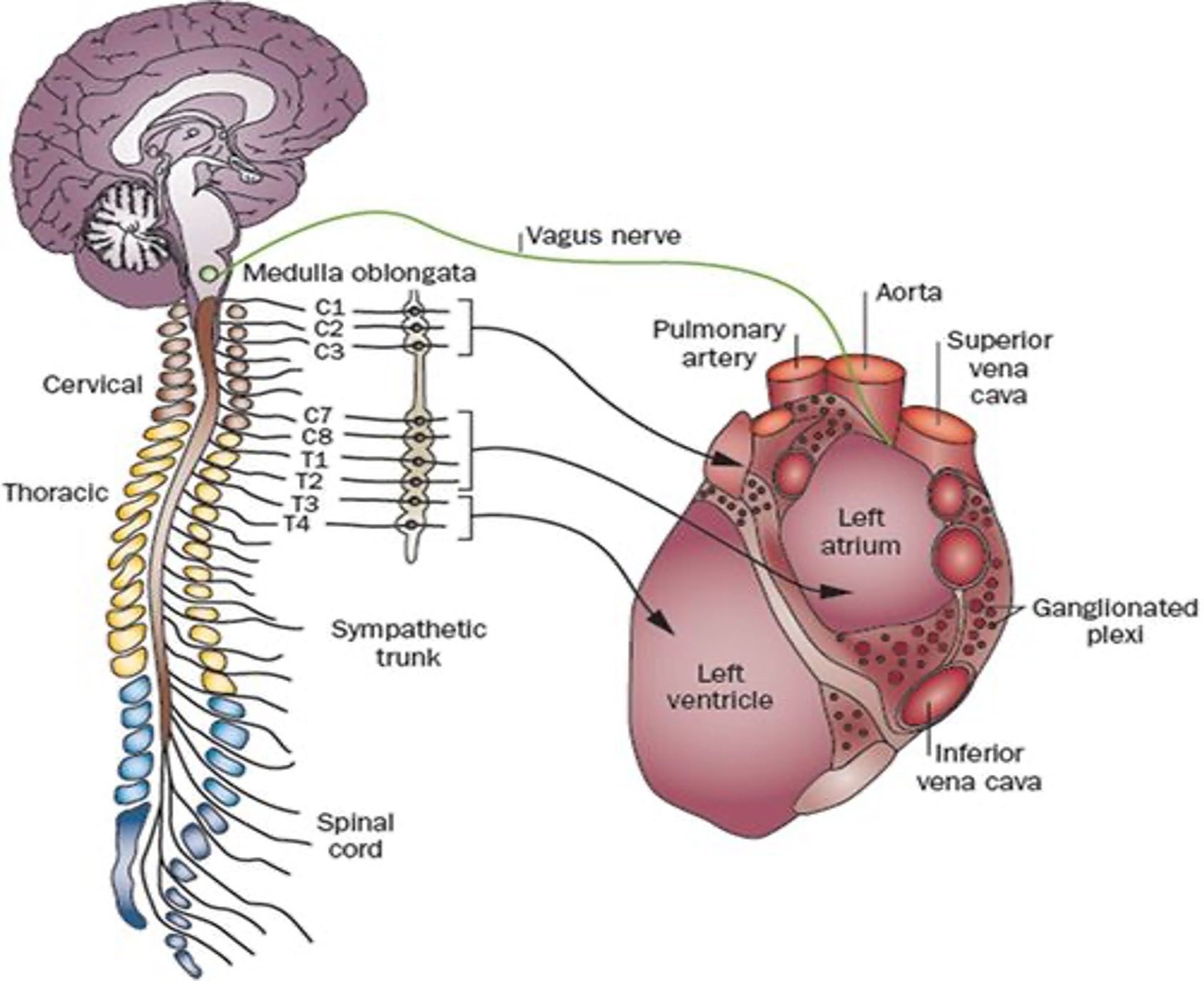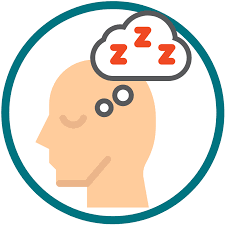In this blog post, we will discuss the symptoms, risk factors, treatment options, and coping mechanisms for stress paralysis. We will also hear from experts about their experiences with this condition.
Contents
- 1 Understanding Stress Paralysis
- 2 Living With Stress Paralysis
- 3 Making Decisions Under Stress Paralysis
- 4 Managing Stress Paralysis
- 5 Talking To Professional
- 6 Treating Stress Paralysis
- 7 Avoiding Stress Paralysis
- 8 Hearing From Experts
- 9 Helping Someone With Stress Paralysis
- 10 Conclusion
- 11 A Word From Therapy Mantra
Understanding Stress Paralysis

Stress paralysis is a condition that can occur when a person is under extreme stress. It is characterized by the inability to move or speak. This condition can be temporary or permanent. It can also be mild or severe.
NOTE: Stress paralysis is not a common condition, but it can occur in people who experience extreme stress.
Degrees of Stress Paralysis
There are three degrees of this paralysis:
- Mild: The person can move but may feel frozen or unable to speak.
- Moderate: The person can move but may feel paralyzed on one side of their body.
- Severe: The person is completely paralyzed and unable to move or speak.
Types of Stress Paralysis
There are three types of this paralysis:
Based On Factors
- Psychogenic: This type is caused by psychological factors, such as stress or anxiety.
- Neurogenic: This type is caused by damage to the nervous system.
- Myopathic: This type is caused by damage to the muscles.
Based On Causes
- Traumatic: This type of stress paralysis occurs when a person experiences a traumatic event. It can be permanent or temporary.
- Psychological: This type of stress paralysis occurs when a person is under psychological stress. It can be permanent or temporary.
- Situational: This type of stress paralysis occurs when a person is in a stressful situation. It is usually temporary and resolves itself once the situation has passed.
Causes of Stress Paralysis
There are many different causes of this paralysis. Some of the most common causes include:
Traumatic events: A traumatic event can cause a person to experience stress paralysis. This includes things like car accidents, natural disasters, and assault.
Situational stress: Situational stress can also cause a person to experience stress paralysis. This includes things like deadlines, public speaking, and exams.
Psychological stress: Psychological stress can also cause a person to experience stress paralysis. This includes things like job loss, divorce, and the death of a loved one.
Risk Factors of Stress Paralysis

There are several risk factors for stress paralysis. Some of the most common risk factors include:
Gender: Women are more likely to develop stress paralysis than men.
Age: Older adults are more likely to develop stress paralysis than younger adults.
A history of mental illness: A history of mental illness is also a common risk factor for stress paralysis. This includes conditions like anxiety, depression, and post-traumatic stress disorder.
A family history of stress paralysis: A family history of stress paralysis is another common risk factor. This means that if someone in your family has had stress paralysis, you are more likely to develop it as well.
Cardiovascular health: Cardiovascular health can also play a role in the development of stress paralysis. Conditions like high blood pressure, heart disease, and atherosclerosis can increase a person’s risk for developing stress paralysis.
Living With Stress Paralysis
Living with such paralysis can be difficult. It can affect a person’s physical health, mental health, and relationships.
Physical Health
Stress paralysis can harm a person’s physical health. This includes things like:
- Muscle tension: Stress can cause muscles to tense up, which can lead to pain and stiffness.
- Heart problems: Stress can also cause heart problems, such as high blood pressure and heart attacks.
- Digestive problems: Stress can also cause digestive problems, such as constipation and diarrhea.
- Decreased immune function: Stress can weaken the immune system, making a person more susceptible to illness.
Mental Health
This paralysis can also harm a person’s mental health. This includes things like:
- Anxiety: Stress can cause anxiety and panic attacks.
- Depression: Stress can cause depression and lead to suicidal thoughts.
- Insomnia: Stress can cause insomnia and make it difficult to fall or stay asleep.
Relationships
This paralysis can also harm relationships. This includes things like:
- Decreased communication: When a person is paralyzed by stress, they may be less likely to communicate with their loved ones.
- Decreased intimacy: Stress can also cause a decrease in intimacy and lead to problems in relationships.
- Marital problems: Stress can also cause marital problems and lead to divorce.
Work
This paralysis can also harm work. This includes things like:
- Decreased productivity: When a person is stressed, they may be less productive at work.
- Reduced creativity: Stress can also reduce a person’s creativity and lead to problems at work.
- Missed deadlines: Stress can also cause people to miss important deadlines.
- Trouble focusing: Stress can also cause people to have trouble focusing and completing tasks.
Making Decisions Under Stress Paralysis

Making decisions while under stress can be difficult. Here are some tips to help you make decisions while under stress:
Take your time: Don’t rush into a decision. Give yourself time to think things through.
Get organized: Make sure you have all the information you need before making a decision.
Talk to others: Talk to your friends and family about the decision you need to make.
Think about what’s important to you: What are your priorities? What is most important to you?
Weigh the pros and cons: Consider both the positive and negative aspects of each option.
Stay calm: Don’t let stress overwhelm you. Stay focused and calm when making a decision.
Be patient: Don’t expect to get everything right the first time. Be willing to make changes if necessary.
Know your limits: Don’t try to do too much at once. Take things one step at a time.
Managing Stress Paralysis
There are many different ways to cope with such paralysis. Some of the most common coping mechanisms include:
Self-help Tips
Many self-help tips can help a person cope with this paralysis. Some of the most common tips include:
- Staying active: Exercise can help to release tension and improve mood.
- Eating healthy: Eating a healthy diet can help to improve energy levels and reduce stress.
- Getting enough sleep: Getting enough sleep can help to improve mood and reduce stress.
Self-help Techniques
Many self-help techniques can help a person cope with such paralysis. Some of the most common techniques include:
- Yoga: Yoga can help to improve flexibility and relaxation.
- Meditation: Meditation can help to calm the mind and relieve stress.
- Massage: Massage can help to relieve muscle tension and stress.
- Visualization: Visualization can help to reduce stress and anxiety.
- Deep breathing: Deep breathing can help to calm the mind and body.
- Progressive muscle relaxation: This technique involves tensing and relaxing different muscle groups.
Self-help Tools
Many self-help tools can help a person cope with such paralysis. Some of the most common tools include:
- Stress balls: Stress balls can help to reduce muscle tension.
- Journaling: Journaling can help to release emotions and relieve stress.
- Coloring books: Coloring books can help to reduce anxiety and improve focus.
Support Groups
There are many support groups available for people with stress paralysis. These groups can provide support, information, and shared experiences. Some of the most common groups include Stress Paralysis Support Group on:
- Tumblr
NOTE: There are also many resources available to help you cope with stress paralysis. You can find information about stress paralysis online, in books, and from experts. Remember that you can overcome this condition and lead a happy and healthy life.
Talking To Professional

If self-help techniques are not enough, a person may need to talk to a professional. Some of the most common professionals include:
- Counselors: Counselors can help to provide support and guidance.
- Therapists: Therapists can help to identify and address the underlying causes of stress.
- Doctors: Doctors can help to identify and treat the symptoms of stress paralysis.
- Psychologists: Psychologists can help to identify and treat mental health conditions.
- Psychiatrists: Psychiatrists can help to prescribe medication for mental health conditions.
Treating Stress Paralysis
There are many different treatment options for this paralysis. Some of the most common treatments include:
- Therapies: Therapies, such as cognitive-behavioral therapy, can help to identify and address the underlying causes of stress.
- Medications: Medications, such as antidepressants and anti-anxiety medications, can help to reduce symptoms of stress.
Therapies
Many different therapies can help a person cope with stress paralysis. Some of the most common therapies include:
- Cognitive-behavioral therapy: This type of therapy can help to identify and address the underlying causes of stress.
- Interpersonal therapy: This type of therapy can help to improve relationships and reduce stress.
- Dialectical behavior therapy: This type of therapy can help to improve mood and coping skills.
- Family therapy: Family therapy can help to improve communication and relationships within the family.
Medications
Many different medications can help a person cope with such paralysis. Some of the most common medications include:
- Antidepressants: Antidepressants can help to reduce symptoms of depression and anxiety.
- Anti-anxiety medications: Anti-anxiety medications can help to reduce symptoms of anxiety.
- Stimulants: Stimulants can help to improve energy levels and reduce fatigue.
Case Study

A person who is struggling with stress paralysis may find it helpful to read about other people’s experiences. In this case study, a woman describes her experience with stress paralysis:
I was diagnosed with stress paralysis about a year ago. It was a very difficult time for me. I felt like I couldn’t do anything and I was constantly tired. Also, I had trouble concentrating and I often felt overwhelmed. As a result, I wasn’t able to leave my house because I was so scared of having a panic attack in public.
Thankfully, my family and friends were very supportive. They helped me to get through the tough times. With their help, I started seeing a therapist and taking medication. And I slowly started to feel better. I still have anxiety, but I’m able to manage it now.
NOTE: One of the most important things to remember is that you are not alone. Many people suffer from stress paralysis. You can find support from others who understand what you are going through.
Avoiding Stress Paralysis
There are many different ways to avoid stress paralysis. Some of the most effective ways include:
Identifying triggers: One of the best ways to avoid stress paralysis is to identify what triggers your stress. Once you know what triggers your stress, you can take steps to avoid those situations.
Creating a stress management plan: A stress management plan can help you deal with stressful situations. This includes things like deep breathing exercises, relaxation techniques, and positive self-talk.
Taking breaks: When you are feeling stressed, take a break from whatever is causing you stress. This includes things like taking a few minutes to yourself or going for a walk.
Staying positive: One of the best ways to avoid stress paralysis is to stay positive. This means looking for the good in every situation and setting realistic goals.
Talk to a therapist: If you are struggling with chronic stress, talking to a therapist may be helpful. A therapist can provide you with support and guidance.
Hearing From Experts
We talked to a few stress paralysis experts to get their thoughts on the condition.
“Stress paralysis is a very real and serious condition that can affect anyone at any time. It is important to seek help if you are experiencing symptoms of stress paralysis.”
-Dr. Jameson, Psychologist
“I have seen many people suffering from stress paralysis. The best way to overcome this condition is to seek help from a professional.”
-Dr. Patel, Psychiatrist
“Stress paralysis can be very debilitating and it is important to get help if you are struggling with this condition.”
-Ms. Williams, Therapist
Brain Activity During Stress Paralysis

Recent studies have shown that there is a lot of brain activity during this paralysis. Some of the most common activities include, the brain is:
- In a state of stress: The brain is in a state of stress, which can lead to the development of mental health conditions.
- Trying to protect itself: The brain is trying to protect itself from the perceived threat of stress.
- In a state of arousal: The brain is in a state of arousal, which means that it is releasing hormones such as adrenaline and cortisol.
These activities were spotted in the brain regions:
- The amygdala: The amygdala is responsible for emotional responses, such as fear and anxiety.
- The hippocampus: The hippocampus is responsible for memory and learning.
- The prefrontal cortex: The prefrontal cortex is responsible for decision-making and executive function.
Books about Stress Paralysis
Many books can provide information about this paralysis. Some of the most common books include:
- Stress Paralysis: A Guide to Understanding and Coping with Stress Paralysis by L.K. Wilson
- Coping with Stress Paralysis: A Self-Help Guide by P.J. Morrissey
- Living with Stress Paralysis: A Workbook for People Who Suffer from Stress Paralysis by L.K. Wilson
Helping Someone With Stress Paralysis
If you know someone who is suffering from such paralysis, there are many things that you can do to help them. Some of the most common things include:
Listening: Listen to what they have to say and offer support.
Providing support: Provide emotional support and understanding.
Offering practical help: Offer practical help with tasks such as grocery shopping or child care.
Encouraging healthy coping: Encourage healthy coping mechanisms, such as exercise or meditation.
Conclusion
Stress paralysis is a condition that can be difficult to cope with. However, there are many resources available to help people who suffer from such paralysis. If you or someone you know is suffering from this paralysis, there are many ways that you can get help.
Do not suffer in silence – reach out for help today. Some people understand what you are going through and can offer support. Remember, you are not alone.
A Word From Therapy Mantra
Your mental health — Your psychological, emotional, and social well-being — has an impact on every aspect of your life. Positive mental health essentially allows you to effectively deal with life’s everyday challenges.
At TherapyMantra, we have a team of therapists who provide affordable online therapy to assist you with issues such as depression, anxiety, stress, workplace Issues, addiction, relationship, OCD, LGBTQ, and PTSD. You can book a free therapy or download our free Android or iOS app.


